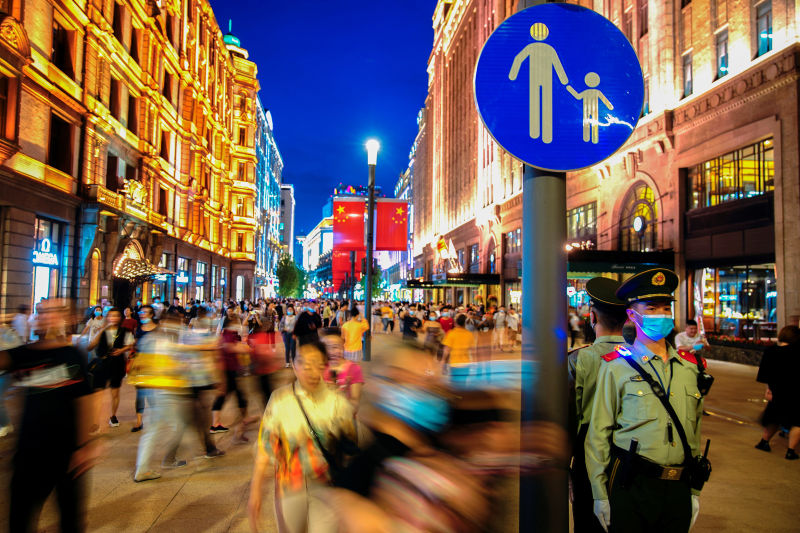Disappointing results from China’s mid-year online shopping festival has dented hopes that retailers may enjoy a near-term recovery.
E-commerce sales declined for the first time during the “618 festival” that ended last week, local media reported, which points to the pressure that has built up on retailers who have been stuck in a gruelling price war.
The festival, named after the June 18 founding date of e-commerce provider JD.com but embraced by all platforms, is China’s second-biggest annual sales event after ‘Singles Day’ in November and is seen as a key indicator of household consumption.
ALSO SEE: China’s Shein Files For Potential London IPO as US Plans Stall
The two events once showcased the rampant rise of Chinese consumerism, providing a reliable bump in sales for platforms and brands alike. The last time Alibaba reported Singles Day revenue, in 2021, sales hit $84.54 billion over the event’s duration.
This year, 618 has instead proven just how hard it is to get consumers spending at all.
Consumer sentiment still poor
“Chinese spend has been basically focused on sales opportunities and coupons. If they’re not spending during this (618 sale), when on earth are they going to consume?” Alicia Garcia-Herrero, Asia Pacific chief economist at Natixis, said.
To be fair to the event, discounts have become available year-round since the pandemic, with retailers competitively offering them to woo belt-tightening consumers, thereby helping stunt sales growth during big shopping festivals.
Sales during the marquee Singles Day shopping bonanza last year grew just 2%.
While the discounting has helped slow the flow of consumers away from platforms such as JD.com and Alibaba-owned Tmall and Taobao to low-cost players such as Pinduoduo, it has not supercharged consumer spending – recent quarterly results showed revenues for Alibaba’s domestic e-commerce arm rose by only 4%.
Investors also remain unconvinced, with Alibaba shares trading around 5% down this year and JD.com down over 3%.
But the bigger concern is weak consumer sentiment, which has remained stubbornly low since 2022.
A new Bank of America’s China consumer survey found that sentiment weakened further in June.
The share of respondents who plan to spend more over the next six months fell to 45% in June, compared to 55% in April. And only 31% of respondents are expecting an increase in income over the next six months, a fall of 10 percentage points from April.
Consumption ‘more cautious’, rational
Josh Gardner, CEO of Kung Fu Data, which manages online stores for over a dozen global brands, said e-commerce in China is commonly referred to as “Everest commerce” for its enormous sales peaks around 618 and Singles Day.
But these peaks may become less pointy as sales periods lengthen and consumers lose interest, turning instead to everyday discounts offered, for example by livestream shopping on platforms such as ByteDance-owned Douyin, he said.
“I think what we’re seeing this year is a shift away from full price retail altogether… It’s more rational consumption and caution and looking for value,” Gardner said.
Consumers in China have been reluctant to spend amid concerns about their personal wealth fuelled by a real estate slump, stunted wage growth and high youth unemployment, putting at risk China achieving its stated economic growth goal of “around 5%” this year.
But rather than stimulate consumption – as they once reliably did – festivals such as 618 might be working against a consumption rebound in a year like this in which everyone is focused on buying what they need at the lowest possible price.
Kang Li, a 45-year-old mother-of-one who works in sales in the southern city of Changsha, is among those who are turning more frugal and shunning purchases of non-essential items.
“(I bought) household essentials, and some clothes and shoes for my kid, plus my own skincare products,” Kang said, referring to her 618 shopping this year.
“Basically, I stock up on these when shopping events like 618 come around so I don’t need to purchase them again for half a year,” when Singles Day rolls around, she added.
Weak second half may spur more exports
Jason Yu, greater China managing director of market research firm Kantar Worldpanel, warned that the coming months would be challenging for retailers as people bought what they needed during 618.
“This pantry loading behaviour is an overdraft of the future consumption potential… July is going to be very challenging,” he said.
Garcia-Herrero of Natixis forecast the second half is likely to see retail sales growing only by low single digits, meaning consumption’s share of China’s GDP will shrink rather than expand as many economists believe it needs to.
“This is terrible news for rebalancing the global economy because China will continue to have to export its way out of trouble,” she said.
- Reuters with additional editing by Jim Pollard
NOTE: The photo on this report was changed on June 25, 2024.
ALSO SEE:
China’s Mid-Year Online Sales Festival Marked by Flat Outlook
China’s PBOC May Start Bonds Trading, Amid Stability Concerns
Weak Factory, Property Data Highlights China’s Uneven Recovery
Price Wars by Chinese Retailers Amplify Weak Consumer Outlook
Turn Away From EV Tariffs, China Tells European Commission
Biden Ramps US Tariffs on Chinese EVs, Metals, PV Cells, Chip
China’s Property Debts Seen Weighing Down Economy for Years
Chinese Economy Headed to a Dead-End: Scholar – NYT
























